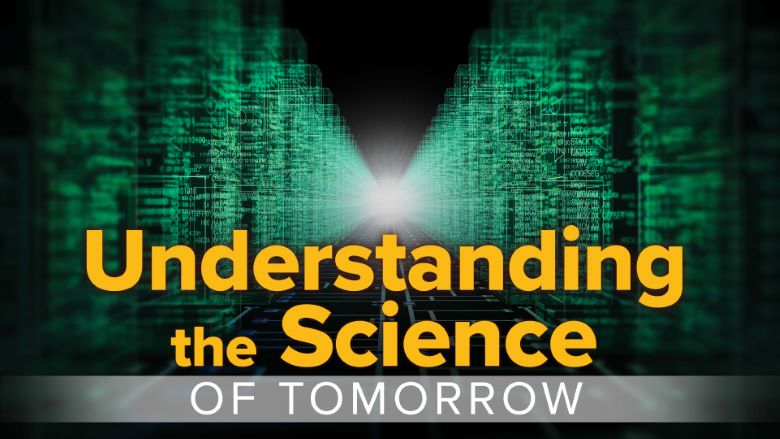

Science and technology are, without a doubt, two forces that will change the way you live your life in the coming months, years, and decades. Nanotechnology, quantum computing, genetic engineering; these and other fascinating fields have the power to revolutionize almost every aspect of existence, including how you eat and drink, how you communicate, how you travel, how you learn—even how long you live.
And in recent decades, these forces have evolved and developed at a lightning-fast pace. So fast, in fact, that the future of science and technology couldn’t be any more exciting than it is now, as scientists are on the cusp of breakthroughs, including
These and other scientific breakthroughs of tomorrow will do more than enhance and improve everyday life. They also will help solve some of our world’s most pressing crises and dilemmas, including food and water shortages, clean and reusable energy needs, detection and curing of life-threatening illnesses, and so much more. And while some of these promises are surrounded by hype and myth, the truths about them are more startling—and more important—than you ever imagined.
Explore the many possibilities of what your future may look like with Understanding the Science for Tomorrow: Myth and Reality, a scientifically accurate and enlightening survey of today’s most advanced research in fields such as engineering, biology, chemistry, and theoretical physics. These 24 lectures by research scientist and Professor Jeffrey C. Grossman of the Massachusetts Institute of Technology delve into the genuine science of today’s—and tomorrow’s—hottest issues in an accessible manner that helps you grasp these sometimes esoteric topics. They are designed for anyone curious about the current state of science and technology and where it is likely to be heading in the near future.
Investigate a Range of Real-World Applications
“For millennia, science has given us knowledge of how the world works that has led, in turn, to more magnificent discoveries and extraordinary innovation,”says Professor Grossman. “And yet rarely, if ever, has there existed a role for science, a scale for science, and an absolute need for science as there exists today.”
In Understanding the Science for Tomorrow, you’ll see firsthand how recent developments in science and technology can potentially fulfill this need in a range of modern-day, real-world areas.
In discussing these and other subjects, Professor Grossman takes care to explain the basic science behind them in terms that are easy to understand. He also shows the intricate connections between advancements in one field (such as energy) and their impact in a host of other areas (such as transportation, food production, and computing). You’ll come to see science as a giant, interconnected web supporting not just one area of your everyday life but all of them.
Get Intriguing Sneak Peeks at New Scientific Developments
Understanding the Science for Tomorrow is filled with intriguing sneak peeks at the latest developments and technologies in a range of scientific fields. With his characteristic insight and contagious excitement, Professor Grossman reveals what you can possibly expect from these and other marvels.
In discussing these and other eye-opening topics, Professor Grossman always makes a point to emphasize fact and truth over fiction and hype. As startling as these possibilities for the future may be, there are still plenty of challenges that scientists are facing, as well as tradeoffs that need to be considered from the development and adoption of these scientific advancements.
Discover How Science and Technology Are Redefining Your World
In addition to showcasing his ability to sidestep media buzz and present only the reality of each of these scientific fields while peering responsibly into the future, Professor Grossman brings his celebrated teaching style to each of these 24 engaging and densely illustrated lectures. An expert in fields from computational science and energy storage to nanotechnology and thermodynamics, he’s skilled at bringing such a broad range of scientific disciplines into a single, concise, and comprehensive package. And his research work at MIT finds him every day on the frontier of devising and developing new technologies for addressing the scientific dilemmas of today and tomorrow.
By the final lecture of Understanding the Science for Tomorrow, you’ll have a stronger sense of some important fundamental scientific principles being used right this moment to innovate your life. You’ll also find yourself filled with a sense of excitement and wonder for both how, and how quickly, science and technology are working to make your world a better place.
2. Magnetism—The Science of Attractions
3. Transportation—The Science of How We Move
4. Computers—Trillions of Bits per Second
5. Artificial Intelligence—Thinking Machines
6. Robotics—Living with Machines
7. Microscopes—The Power of Seeing It All
8. Nanotechnology—The New Science of Small
9. Nanotechnology—Changing Everything
10. Genetic Engineering—Life’s Building Blocks
11. Synthetic Life—Making Life from Scratch
12. The Brain—Your Body’s Supercomputer
13. Cancer and Aging—Can They Be Defeated?
14. Powerful Viruses—Future Friend or Foe?
15. Food or Famine—Science Holds the Key
16. Water—The Currency of the Next Century
17. Biofuels—The Fuel of the Future?
18. Solar Cells—Electricity from the Sun
19. Batteries—Storing Energy Chemically
20. The Hydrogen Economy—Fact or Fiction?
21. Nuclear Energy—Harnessing Star Power
22. Prediction—From Storms to Stocks
23. Communication—Transcending Time and Space
24. Science in the Future
There are no reviews yet.
You must be <a href="https://wislibrary.net/my-account/">logged in</a> to post a review.